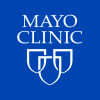预约演示
更新于:2026-02-27
Elraglusib
更新于:2026-02-27
概要
基本信息
非在研机构 |
最高研发阶段临床2期 |
首次获批日期- |
最高研发阶段(中国)- |
特殊审评孤儿药 (美国)、孤儿药 (欧盟)、罕见儿科疾病 (美国) |
登录后查看时间轴
结构/序列
分子式C22H13FN2O5 |
InChIKeyFARXPFGGGGLENU-UHFFFAOYSA-N |
CAS号1034895-42-5 |
关联
10
项与 Elraglusib 相关的临床试验NCT04832438
Phase 2 Study of 9-ING-41, a Glycogen Synthase Kinase 3 Beta (GSK 3β) Inhibitor, Plus Carboplatin in Patients With Advanced, Metastatic Salivary Gland Carcinoma
9-ING-41 is a small molecule potent selective GSK-3β inhibitor with antitumor activity. This study investigates 9-ING-41 in combination with carboplatin chemotherapy in patients with incurable, recurrent or metastatic salivary gland carcinomas (SGC). Patients with advanced SGC (including all histologic subtypes and adenoid cystic carcinoma [ACC]) will receive 9-ING-41 intravenously (IV) along with carboplatin IV at standard dosing together on Day 1, and 9-ING-41 alone on Day 4 of a 21-day cycle. Participants will be enrolled to two histologic cohorts: Cohort 1 will be comprised of those with ACC, and Cohort 2 will include patients with non-ACC SGC (or all other salivary gland cancer histologies). Treatment will continue until progression of disease, death, or discontinuation of therapy for any reason.
开始日期2030-12-18 |
申办/合作机构 |
NCT06896188
A Phase Ib Study of 9-ING-41 (Elraglusib), a Glycogen Synthase Kinase 3-beta (GSK-3β) Inhibitor, Combined With Retifanlimab, a PD-1 Inhibitor, Plus Modified FOLFIRINOX as Frontline Therapy for Patients With Advanced Pancreatic Adenocarcinoma (RiLEY)
This is a study of the combination of 9 ING-41 (elraglusib) and retifanlimab plus mFOLFIRINOX in patients with pancreatic cancer without prior systemic therapy for advanced disease. The safety lead-in cohort will consist of 6 patients, followed by dose de-escalation if necessary, based on safety assessments. After evaluating the safety and tolerability at the initial dose level, the study will proceed to an expansion cohort at the determined safe dose level, with the total maximum enrollment not exceeding 12 patients for the entire study.
开始日期2025-09-22 |
申办/合作机构 |
NCT05077800
A Phase II Study of FOLFIRINOX Combined With the Glycogen Synthase Kinase-3 Beta (GSK-3 β) Inhibitor Elraglusib and the Transforming Growth Factor-β (TGF-β) Inhibitor Losartan in Patients With Untreated Metastatic Pancreatic Adenocarcinoma
The purpose of this study is to find out if an experimental drug will prevent metastatic pancreatic adenocarcinoma from becoming resistant to standard treatment for the disease.
The names of the study drugs involved in this study are:
* 9-ING-41
* Losartan
* Ferumoxytol
* FOLFIRINOX (made up of 4 different drugs):
* 5-Fluorouracil (5-FU)
* Oxaliplatin
* Irinotecan
* Leucovorin
The names of the study drugs involved in this study are:
* 9-ING-41
* Losartan
* Ferumoxytol
* FOLFIRINOX (made up of 4 different drugs):
* 5-Fluorouracil (5-FU)
* Oxaliplatin
* Irinotecan
* Leucovorin
开始日期2022-03-21 |
申办/合作机构 |
100 项与 Elraglusib 相关的临床结果
登录后查看更多信息
100 项与 Elraglusib 相关的转化医学
登录后查看更多信息
100 项与 Elraglusib 相关的专利(医药)
登录后查看更多信息
35
项与 Elraglusib 相关的文献(医药)2026-01-06·CLINICAL CANCER RESEARCH
Elraglusib, a Glycogen Synthase Kinase 3β Inhibitor, plus Chemotherapy with or without Immunotherapy in Patients with Recurrent, Metastatic Salivary Gland Carcinoma
Article
作者: Hanna, Glenn J. ; Jo, Vickie Y. ; Haddad, Robert I. ; Ugolkov, Andrey ; Scarfo, Nicole ; Wong, Kristine ; Sehgal, Kartik ; Mazar, Andrew ; Dennis, Michael J. ; O’Neill, Anne ; Shin, Kee-Young ; Bedard, Veronica
Abstract:
Purpose::
Glycogen synthase kinase 3β (GSK-3β) is a known therapeutic target in cancer. Aberrant nuclear GSK-3β (nGSK-3β) expression has been shown in some salivary gland cancers. Elraglusib is a small-molecule GSK-3β inhibitor with immunomodulatory potential. We hypothesized that elraglusib plus platinum-based chemotherapy and immunotherapy priming would be a novel treatment approach for salivary gland cancer.
Patients and Methods::
This phase II, open-label trial enrolled patients with recurrent or metastatic salivary gland cancer [adenoid cystic carcinoma (ACC) vs. other subtypes] with disease progression in the preceding year. Cohort 1 received elraglusib (15 mg/kg i.v. on days 1 and 4) plus carboplatin (AUC = 5) or cisplatin (75 mg/m2) every 21 days. Cohort 2 received two cycles of pembrolizumab (200 mg i.v.) every 21 days prior to the same regimen. The primary endpoint included best overall response rate (ORR) by RECIST v1.1 (>5/32 in response to detect 25% ORR).
Results::
Thirty-two patients were enrolled, including 15 (47%) with ACC and 17 (53%) with non-ACC. The best ORR was 9.4% [3/32; 95% confidence interval (CI), 2–25; three partial responses, all non-ACC]. Nineteen (59%) patients achieved stable disease. The median duration of response was 6.9 months. Common treatment-related adverse events were anemia (22, 69%), nausea (16, 50%), and neutropenia (14, 44%). At the median follow-up of 18.3 months, the median progression-free survival was 6.4 months (95% CI, 2.3–8.8), and the median overall survival was 18.6 months (95% CI, 9.7–29.4) overall. The median nGSK-3β expression was 50% versus 2% for responders versus nonresponders.
Conclusions::
The trial did not meet its primary endpoint, although 18% of patients with non-ACC treated with immune priming followed by cisplatin plus elraglusib achieved a response. Higher nGSK-3β expression was observed in tumor samples obtained from responders.
2025-12-31·CANCER BIOLOGY & THERAPY
Potential therapeutic GSK-3β inhibitor 9-ING-41 is active in combination with venetoclax in double-hit lymphoma (DHL)
Article
作者: Guo, Xutao ; Wei, Xiaolei ; Zhang, Yunxia ; Shi, Pengcheng ; Zheng, Haiqing ; Lei, Haohao
BACKGROUND:
Double-hit lymphoma (DHL) exhibits aggressive behavior due to dysregulated proliferation and resistance to apoptosis. Current therapies, including R-CHOP, show limited efficacy, necessitating novel strategies. 9-ING-41, a novel ATP-competitive small-molecule inhibitor that targets glycogen synthase kinase-3β (GSK-3β), has emerged as a promising therapeutic agent because of its ability to disrupt oncogenic signaling pathways associated with tumor progression and treatment resistance. However, the antitumor effects of 9-ING-41 in DHL remain unclear.
MATERIALS AND METHODS:
DHL cell lines (Karpas-422 and SuDHL2) were treated with venetoclax and 9-ING-41, either alone or in combination. Cell viability in cytotoxicity assays was assessed using the CCK-8 assay, while apoptosis and cell cycle changes were analyzed via flow cytometry. Western blotting was employed to evaluate alterations in the levels of GSK-3β and WNT/β-catenin pathway proteins following treatment.
RESULTS:
In preclinical studies utilizing DHL cell models, the single agent 9-ING-41 demonstrated robust biological activity through inducing significant G1/S phase cell cycle arrest and triggering apoptosis. When coadministered with venetoclax, a clinically approved BCL-2 inhibitor, the combination exhibited marked synergistic cytotoxicity in DHL cells, achieving superior inhibitory effects compared to either agent alone. The combined treatment enhanced cell cycle arrest, significantly reducing the number of S-phase cells and reinforcing G0/G1 arrest. Further mechanistic studies revealed that the combination modulated key proteins in the GSK-3 pathway and downstream WNT/β-catenin pathway, revealing a potential synergistic mechanism.
CONCLUSION:
The demonstrated single-agent efficacy and combination synergy with venetoclax support the potential of 9-ING-41 as a novel therapeutic strategy for DHL. These findings provide a proof-of-concept that may serve as a basis for future preclinical investigations in DHL.
2025-09-01·CNS Neuroscience & Therapeutics
Article
作者: Wang, Yarong ; Xie, Jiazhao ; Wang, Jian‐Zhi ; Zhang, Yao ; Gao, Yang ; Xu, Haibo ; Wang, Xin ; Wang, Yuying ; Sun, Fei ; Xu, Zhipeng ; Zhang, Fuqiang ; Zhang, Junjian
ABSTRACT:
Background:
The apolipoprotein E (ApoE) ε4 allele and type 2 diabetes mellitus (T2DM) are independent risk factors for Alzheimer's disease (AD), the most prevalent neurodegenerative disorder in the elderly. The T2DM patients carrying the ApoE ε4 allele exhibit heightened activation of platelet glycogen synthase kinase‐3β (GSK‐3β), a key downstream kinase in the insulin signaling pathway, along with more severe cognitive deficits. This observation suggests an intrinsic link between ApoE ε4, GSK‐3β, and cognitive dysfunction. However, the precise mechanisms by which ApoE ε4 influences GSK‐3β activity and exacerbates brain pathology and cognitive decline in T2DM patients remain poorly understood.
Methods:
To investigate these mechanisms, we developed T2DM mouse models by generating humanized ApoE ε3/ε3 and ε4/ε4 knock‐in mice. The mice were subjected to a high‐fat diet combined with multiple low‐dose intraperitoneal streptozotocin injections to induce T2DM. We then assessed GSK‐3β expression, AD‐like pathologies, and cognitive functions in these models.
Results:
We observed that GSK‐3β activity was significantly upregulated in ApoE4 mice, accompanied by disruption of the insulin signaling pathway. Notably, ApoE4‐T2DM mice exhibited exacerbated AD‐related pathologies, including increased accumulation of hyperphosphorylated tau, neuroinflammation, and synaptic loss. These changes were correlated with more severe cognitive impairments compared with ApoE3‐T2DM or ApoE4 mice. Furthermore, inhibition of GSK‐3β activity using the selective inhibitor 9‐ING‐41 effectively ameliorated both AD‐like pathologies and cognitive deficits in ApoE4‐T2DM mice.
Conclusions:
Our findings suggest that ApoE4 exacerbates AD pathogenesis by activating GSK‐3β. Furthermore, targeting GSK‐3β may offer a promising therapeutic strategy to halt the progression from T2DM to AD, providing new insights into potential interventions for patients at risk.
70
项与 Elraglusib 相关的新闻(医药)2026-02-03
·靶点圈
01
TIGIT的生物学特性
TIGIT的分子基础
●表达分布特征
①表达细胞:主要表达于活化的CD4⁺T细胞、CD8⁺细胞毒性T细胞、γδT细胞、自然杀伤细胞(NK细胞)及调节性T细胞(Treg),不表达于初始T细胞、DC细胞、巨噬细胞或B细胞。
表1 表达TIGIT受体和配体的细胞
②异常表达:肿瘤浸润淋巴细胞(TILs)中TIGIT表达量显著高于外周血免疫细胞,且与肿瘤分期、不良预后相关,常与PD-1共表达(>70%TIGIT⁺细胞同时表达PD-1),在实体瘤和血液瘤中均有广泛分布。
③调控因素:表达受TCR激活、炎症微环境调控,慢性抗原刺激会进一步升高其表达,标记免疫细胞耗竭。化疗、I型干扰素(IFN-I)、维生素D可下调其表达;微波消融、缺氧、CCL23细胞因子、IL-10等可上调其表达。
图1 TIGIT的表达受多种因素影响
●分子结构特点
①基因定位:编码TIGIT的基因定位于人类3q13.31染色体,编码含244个氨基酸的跨膜蛋白,属于免疫球蛋白超家族和脊髓灰质炎病毒受体(PVR)/nectin家族。
②结构组成:胞外免疫球蛋白可变区(IgV)结构域、I型跨膜域、胞内抑制域,胞内抑制域含ITIM(免疫受体酪氨酸抑制基序)和ITT样(免疫球蛋白酪氨酸尾样)基序,二者是介导抑制信号的核心。
TIGIT的配体与信号通路
●配体
①核心配体CD155(PVR):亲和力最高,广泛表达于肿瘤细胞及抗原呈递细胞(APC),与TIGIT结合是免疫抑制的关键,IFN-γ可上调其在血管内皮细胞的表达。
②次要配体:CD112、CD113的亲和力较低,分布于造血/非造血组织及部分肿瘤。其中CD112-TIGIT轴在神经母细胞瘤中被证实为重要免疫调控通路。
③专属配体Nectin-4:仅与TIGIT结合,不与CD226/CD96相互作用,在乳腺、膀胱、肺癌中高表达。
④特殊配体:具核梭杆菌分泌的Fap2蛋白,可直接结合TIGIT并抑制NK细胞功能。
图2 TIGIT相关配体和受体的相互作用
●信号通路机制
①直接抑制信号:TIGIT与配体结合后,ITT样基序(Y225)磷酸化,招募Grb2、β-arrestin2及SHIP-1磷酸酶,阻断PI3K/MAPK、NF-κB信号,抑制免疫细胞增殖和细胞因子分泌。
②CD155介导抑制:DC细胞表面CD155与TIGIT结合后,上调IL-10、下调IL-12,诱导DC向免疫耐受表型转化; 巨噬细胞则向M2型极化,增强免疫抑制。
③竞争共刺激信号:TIGIT与CD226(共刺激受体)竞争结合CD155/CD112,且亲和力更高,同时破坏CD226二聚化,阻断其下游激活信号。
●与PD-1信号协同:PD-1通过SHP-2直接抑制TCR近端信号,TIGIT通过extracellular竞争CD226配体、破坏CD226二聚化,二者共同抑制CD226介导的共刺激信号,需双阻断才能完全恢复免疫功能。
图3 TIGIT相互作用和信号传递
02
TIGIT的免疫抑制功能
TIGIT的核心免疫抑制作用源于直接调控T细胞代谢(尤其是葡萄糖代谢)与协同肿瘤微环境(TME)中缺氧、腺苷等代谢因素,通过双重机制削弱CD8⁺T细胞、NK细胞功能,同时增强Treg免疫抑制活性;单药治疗疗效有限,需联合PD-1抑制剂、代谢调节剂(如A2AR拮抗剂)等方案才能有效逆转免疫抑制,其与代谢通路的交互作用是优化治疗的关键靶点。
图4 TIGIT在调控免疫反应中的作用
TIGIT对T细胞代谢的核心调控机制
● 抑制葡萄糖代谢,阻断T细胞活化
①TIGIT可显著下调CD8⁺T细胞中葡萄糖转运体(GLUT1)及己糖激酶(HK1、HK2)的表达,直接抑制葡萄糖摄取和糖酵解功能。
②结直肠癌、胃癌中,TIGIT⁺CD8⁺T细胞因糖酵解受损,增殖能力和细胞因子(IFN-γ、TNF-α)分泌减少,效应功能缺陷,与患者不良预后相关。
③联合PD-1阻断+促糖酵解药物(如二甲双胍)可恢复TIGIT⁺CD8⁺T细胞的细胞毒性,验证代谢调控的可逆性。
●与TME代谢因素的协同作用
①缺氧-HIF-1α轴:HIF-1α(缺氧核心转录因子)与TIGIT协同抑制免疫,双阻断可降低肿瘤侵袭、抑制血管生成(下调VEGF、MMP2/9),诱导肿瘤细胞凋亡。
②腺苷-A2AR轴:TME中腺苷通过A2AR信号抑制CD8⁺T细胞,而A2AR刺激是TIGIT⁺Treg产生的必要条件;联合阻断TIGIT与A2AR可增强NK细胞对AML细胞的杀伤活性。
③IDO-色氨酸代谢:IDO(吲哚胺2,3-双加氧酶)降解色氨酸产生犬尿氨酸,与TIGIT在葡萄膜黑色素瘤、胶质母细胞瘤中高共表达,共同营造“营养剥夺+免疫抑制”微环境。
图5 TIGIT信号传导与T细胞代谢的相互作用
●关联化疗诱导的衰老与代谢失衡
①奥沙利铂等化疗方案可诱导食管腺癌(OAC)细胞衰老,衰老细胞表面A2AR和TIGIT表达同时上调,形成“衰老相关免疫抑制”环路。
②衰老T细胞因CD28缺失导致脂质代谢紊乱,而TIGIT阻断可改善衰老T细胞的功能,提示TIGIT是衰老相关免疫抑制的关键靶点。
③肿瘤细胞intrinsic-TIGIT表达可抑制NK细胞IFN-γ分泌和细胞毒性,CRISPR敲除后肿瘤生长显著受阻,揭示其自主调控代谢免疫的作用。
图6 TIGIT抑制T细胞的机制
TIGIT对免疫细胞功能的调控(代谢关联机制)
●对CD8⁺T细胞:代谢缺陷+功能耗竭
①TIGIT与PD-1共表达于耗竭CD8⁺T细胞,不仅直接传递抑制信号,还通过代谢缺陷加剧耗竭表型(高表达TIM-3、LAG-3)。
②滤泡淋巴瘤中,TIGIT⁺CD8⁺T细胞的代谢和功能缺陷与不良预后相关,且对PD-1阻断治疗的响应率降低。
图7 TIGIT和PD-1的双重阻断对肿瘤内CD8+T细胞有协同效应
●对NK细胞:直接抑制+代谢协同
①TIGIT通过ITIM基序直接抑制NK细胞脱颗粒和细胞毒性,同时与A2AR、CD39等代谢相关分子协同,进一步削弱其抗肿瘤活性。
②老年AML患者中,TIGIT⁺NK细胞因代谢适应能力下降,功能耗竭更为显著,是疾病复发的危险因素之一。
图8 阻断NK细胞上的TIGIT增强抗肿瘤免疫
●增强Treg的免疫抑制活性
①TIGIT⁺Treg高表达FOXP3、CTLA-4,通过分泌IL-10、FGL2选择性抑制Th1/Th17反应,且其抑制功能依赖A2AR信号。
②TIGIT可促进Treg的代谢适应,使其在葡萄糖匮乏的TME中存活并维持免疫抑制功能。
图9 TIGIT在Tregs上的连接有助于抑制抗肿瘤免疫
●调控B细胞免疫,放大免疫抑制
①TIGIT+记忆B细胞可抑制树突状细胞(DC)的促炎功能,间接抑制Th1、Th2、Th17及CXCR5+ICOS+T细胞应答,同时高表达IL-10、PD-L1等抑制分子。
②肿瘤浸润的TIGIT+CD20+B细胞与患者生存率及辅助化疗应答相关,参与肿瘤免疫微环境(TME)的免疫抑制重塑。
●调控抗原呈递细胞(APC)功能
①结合DC细胞表面CD155,诱导DC细胞向免疫耐受表型转化,上调IL-10、下调IL-12分泌,间接抑制T细胞活化。
②促进巨噬细胞M2型极化,增强免疫抑制性肿瘤微环境(TME)形成。
●协同其他分子放大免疫抑制
①与PD-1共表达:二者协同下调肿瘤内T细胞功能,是双靶点阻断治疗的理论基础;PD-1还可通过降低CD226磷酸化,增强TIGIT的抑制效应。
②反馈调节环路:CD8+T细胞分泌的IL-10可上调TIGIT表达,形成“IL-10→TIGIT升高→免疫抑制增强”的正反馈,加剧TME的免疫抑制状态。
●竞争共刺激受体CD226:TIGIT与CD226竞争结合CD155,且亲和力更高,优先占据配体,阻止CD226介导的T/NK细胞激活;同时破坏CD226二聚化,进一步阻断其信号传导。
03
TIGIT靶向治疗策略
单克隆抗体(mAb)
●Fc功能型抗体
①机制:依赖抗体Fc段与免疫细胞表面FcγR结合,通过ADCC/ADCP效应耗竭Treg、激活髓系细胞(巨噬细胞、DC细胞),增强抗肿瘤免疫。
②代表药物:tiragolumab(罗氏)、ociperlimab(百济神州)、vibostolimab(默克)。
③特点:临床前模型(如CT26结直肠癌)中显示活性,但人类临床试验易“误伤”高表达TIGIT的效应T/NK细胞,多数III期试验失败(如tiragolumab的SKYSCRAPER-01/02)。
④临床进展:tiragolumab联合atezolizumab在II期CITYSCAPE试验中,NSCLC患者ORR达31%(单药16%),但III期SKYSCRAPER-01/02试验未达PFS/OS终点;ociperlimab联合tislelizumab治疗宫颈癌(PD-L1⁺)ORR26%,胆道癌ORR49%(TIGIT⁺/PD-L1⁺人群69%)。
●Fc沉默型抗体
①机制:Fc段改造后无效应功能,专注阻断TIGIT与CD155的结合,避免效应细胞耗竭,降低治疗相关不良反应。
②代表药物:domvanalimab(Gilead)。
③临床进展:联合zimberelimab(PD-1抑制剂)+FOLFOX化疗治疗晚期胃食管癌,PD-L1高表达人群客观缓解率(ORR)达80%,12个月无进展生存期(PFS)率60%,显著优于传统方案。
双/三特异性抗体
●双特异性抗体(bsAbs)
①机制:同时靶向TIGIT与PD-1/PD-L1,既阻断双免疫检查点,又能桥接免疫细胞与肿瘤细胞,增强T细胞浸润和活化,疗效优于单药联合。
②代表类型:PD-L1×TIGIT双抗(如BiPT-23)、PD-1×TIGIT双抗(如rilvegostomig)。
③临床前结果:PD-L1×TIGIT双抗在MC38结直肠癌模型中,显著增加细胞毒性T细胞浸润,减少Treg比例,肿瘤抑制效果优于单药联合。
●三特异性抗体(tsAbs)
①机制:覆盖TIGIT+PD-L1+LAG-3多免疫抑制通路,进一步突破免疫耐受,适用于多靶点共表达的难治性肿瘤。
②代表药物:GB266T(AbTherapeutics)。
③优势:临床前研究显示,其抗肿瘤活性优于双特异性抗体组合,可克服PD-1耐药。
表2 抗TIGIT药物正在进行中的临床试验
小分子与肽类抑制剂(替代抗体的潜力方向)
●小分子抑制剂(SMIs):组织穿透性强、无免疫原性、成本低、易储存,可弥补抗体药物“穿透差、利用率低”的缺陷。
①信号通路抑制剂:elraglusib(9-ING-41),通过抑制GSK-3β,下调TIGIT/PD-1/LAG-3表达,增强CD8+T细胞细胞毒性,联合PD-1抑制剂可抑制B16黑色素瘤生长。
②配体结合阻断剂:Gln(TrT),通过分子对接同时阻断TIGIT与CD155、PD-1与PD-L1的结合,恢复Jurkat细胞IL-2分泌,在MC38模型中促进IFN-γ分泌,抑制肿瘤增殖。
③ferroptosis诱导剂:hemin,结合TIGIT/PVR轴并诱导肿瘤细胞铁死亡,联合PD-1抑制剂可逆转B16黑色素瘤的PD-1耐药。
④药代动力学(PK)特征:口服生物利用度高,主要经肝脏CYP450代谢,通过优化结构可延长半衰期、降低脱靶毒性。
●肽类抑制剂
①机制:通过镜像噬菌体展示技术设计D-肽(避免血清降解),与TIGIT特异性结合,阻断其与CD155的相互作用,依赖CD8+T细胞介导抗肿瘤效应。
②代表药物:DTBP-3(序列:GGYTFHWHRLNP)。
③特点:在PD-1耐药模型中仍能抑制肿瘤生长和转移,安全性优于抗体和小分子药物。
表3 针对TIGIT的不同策略
CAR-T细胞改造策略(针对实体瘤的突破方向)
● 阻断TIGIT表达
①机制:通过慢病毒载体将双shRNA(靶向PD-1和TIGIT)整合至CAR-T细胞,同时下调两个免疫检查点,减少CAR-T细胞耗竭,增强增殖和肿瘤浸润能力。
②效果:CD19靶向CAR-T细胞经改造后,CD226依赖的免疫活性增强,naive/中枢记忆表型(IL7R、BCL6)表达升高,葡萄糖代谢基因(HK2、PFKFB4)激活,复发率降低。
● 自分泌scFv设计
①机制:构建含“分泌型抗TIGIT scFv”的CAR结构(如MT CAR-T),CAR-T细胞可自主分泌抗TIGIT单链抗体,自分泌阻断TIGIT,无需外源性抗体联合。
②优势:在间皮素(MSLN)靶向CAR-T治疗实体瘤模型中,MT CAR-T组无肿瘤复发,疗效优于“普通CAR-T+抗TIGIT抗体”联合组。
● 开关受体改造
①机制:将TIGIT胞外域(ECD)与CD28/4-1BB胞内激活域融合,使TIGIT结合肿瘤细胞表面CD155后,触发激活信号而非抑制信号,将“抑制信号”转化为“促杀伤信号”。
②效果:改造后的CAR-T细胞在CD155高表达肿瘤模型中,细胞因子(IFN-γ、TNF-α)分泌增加,抗肿瘤细胞毒性的增强,且无明显脱靶毒性。
图10 阻断TIGIT的CAR-T治疗
联合治疗策略(提升疗效的关键手段)
● 核心组合:TIGIT阻断+PD-1/PD-L1抑制剂
①协同机制:TIGIT在胞外竞争CD226配体,PD-1在胞内抑制CD226磷酸化,双阻断可完全恢复CD226共刺激信号,激活T/NK细胞功能。
②临床数据:domvanalimab+zimberelimab治疗PD-L1高表达NSCLC,ORR达41%(单药组27%),PFS延长至12个月(单药组5.4个月)。
图11 TIGIT和PD-1免疫检查点及共抑制疗法的协同效应
● 拓展组合:联合化疗/放疗/疫苗
①联合化疗:TIGIT阻断+PD-1抑制剂+FOLFOX化疗,适用于晚期胃食管癌、胆道癌,可通过化疗重塑TME,增加免疫细胞浸润。
②联合放疗:放疗可上调肿瘤细胞CD155表达,增强TIGIT抗体结合效率,同时诱导免疫原性细胞死亡,协同增强抗肿瘤免疫。
③联合肿瘤疫苗:TIGIT阻断+PD-1抑制剂+neoantigen疫苗,适用于低肿瘤突变负荷(TMB)“冷肿瘤”,疫苗可诱导肿瘤特异性T细胞,双检查点阻断可避免T细胞耗竭。
04
TIGIT在多领域的临床应用
实体瘤
● 单药治疗的作用机制与疗效
①激活CD8⁺T细胞:抗TIGIT抗体可逆转CD155介导的CD8⁺T细胞代谢抑制(如葡萄糖代谢受限),增强其细胞毒性、IFN-γ/TNF-α分泌能力,减少G2/M期肿瘤细胞滞留,诱导肿瘤细胞凋亡。例如,在胃癌细胞模型中,TIGITblockade可恢复CD8⁺T细胞增殖和细胞因子分泌,延长荷瘤小鼠生存期。
②增强NK细胞功能:抑制TIGIT可预防NK细胞耗竭,提升CD56ᵈⁱᵐNK细胞对肿瘤细胞的杀伤活性。在乳腺癌模型中,TIGIT封锁可最大化曲妥珠单抗诱导的NK细胞抗肿瘤效应;在卵巢癌模型中,可增强腹腔NK细胞功能,改善肿瘤浸润NK细胞的DNAM-1/TIGIT/CD96检查点的分子表达失衡。
③调控Treg细胞:部分抗TIGIT抗体(如具有功能Fc段的抗体)可通过Fcγ受体激活髓系细胞,分泌促炎细胞因子,间接减少FoxP3⁺Treg浸润;或直接降低Treg的免疫抑制功能,解除对效应T细胞的抑制。
● 代表药物与模型数据:
①Ociperlimab(BGB-A1217):对人TIGIT的亲和力达0.135nM,可竞争性阻断TIGIT与CD155/CD112结合,诱导Treg的ADCC效应,激活NK细胞和单核细胞。在CT26(结直肠癌)、MC38(结直肠癌)、Renca(肾癌)小鼠模型中,单药或联合抗PD-1抗体可显著增强T细胞应答,降低Treg浸润,抑制肿瘤生长。
②COM902:在CT26和Renca模型中,单药或联合抗PVRIG/PD-L1抗体可抑制肿瘤生长,延长荷瘤小鼠生存期。
● 联合治疗策略(协同增效核心方向)
● 关键生物标志物关联
①CD226高表达:CD226ʰⁱCD8⁺T细胞是TIGIT靶向治疗的关键效应细胞,TIGITblockade可增强CD226酪氨酸322位点磷酸化,激活下游信号;CD226缺失时,TIGIT靶向治疗无效。
②CD155表达:肿瘤细胞或肿瘤相关巨噬细胞(TAMs)高表达CD155时,TIGIT靶向治疗疗效更显著(CD155是TIGIT的高亲和力配体)。
● TIGIT在不同癌症中的进展关联
血液瘤
● 主要适应症与疗效
①多发性骨髓瘤(MM):抗TIGIT抗体可恢复MM患者CD8⁺T细胞免疫功能,降低肿瘤负荷,延长Vk12653/Vk12598/5TGM1荷瘤小鼠生存期;在干细胞移植(SCT)后MM模型中,TIGIT封锁可预防T细胞耗竭,减少肿瘤复发。
②急性髓系白血病(AML):抑制TIGIT可增强NK-92细胞对AML细胞的杀伤活性,联合抗CD39或A2AR抑制剂时效应放大;可介导AML相关TIGIT⁺M2型巨噬细胞向M1型极化,增加促炎细胞因子(如IL-1β、TNF-α)分泌,增强抗CD47介导的吞噬作用;TIGIT⁺CD226⁻γδT细胞亚群与AML患者预后相关,靶向该亚群可改善疗效。
③骨髓增生异常综合征(MDS):TIGIT/CD155通路是髓系来源抑制性细胞(MDSCs)抑制NK细胞功能的关键机制,阻断后可恢复NK细胞活性,抑制疾病进展。
● 独特机制与临床转化潜力
①表达:血液瘤中TIGIT主要表达于NK细胞、CD8⁺T细胞和Treg,其高表达与免疫细胞耗竭、疾病进展密切相关;
②与实体瘤不同:AML模型中TIGITblockade可直接作用于白血病相关巨噬细胞(LAMs),重塑骨髓免疫微环境,该机制为血液瘤特有的治疗靶点;
③基因编辑策略:CRISPR敲除NK-92细胞的CBLB和TIGIT基因,可显著增强其对AML和B-ALL细胞的细胞毒性,为“通用型CAR-NK”提供新思路。
自身免疫疾病
● TIGIT在主要自身免疫疾病中的作用
表4 TIGIT在自身免疫疾病中的表达特征及潜在作用
● 临床应用
表5 治疗自身免疫疾病的TIGIT的相关研究
抗体发现服务 & 产品
01
羊驼免疫&骆驼免疫—自建现代化养殖农场
02
万亿级天然抗体库产品—轻松DIY科研抗体
关于仁域生物
成都仁域生物成立于2019年1月,是一家专注基因工程抗体技术和天然抗体库开发的公司,拥有优化的噬菌体展示抗体库技术和现代化的骆驼/羊驼养殖免疫基地。
公司主营业务:
◆ 全人源/纳米抗体定制;◆ 噬菌体展示抗体库定制;
◆ 多肽/多肽库定制;◆ 羊驼/骆驼免疫服务;
◆ 文库相关产品经销商。
protocol 获取 / 产品咨询
邮箱|find@renyubio.com
电话|19136178673
地址|成都市经开区科技产业孵化园
关注我们,小编将持续更新相关内容~
参考文献
Cui H, Hamad M, Elkord E. TIGIT in cancer: from mechanism of action to promising immunotherapeutic strategies. Cell Death Dis. 2025 Sep 1;16(1):664.
Piekarz J, Picheta N, Szklener K, Mańdziuk S. TIGIT Expression and Its Implications in Non-Small-Cell Lung Cancer Progression and Therapy: A Systematic Review. Int J Mol Sci. 2025 Sep 23;26(19):9307.
Sundstrom EC, Huang X, Wiemer AJ. Anti-TIGIT therapies: a review of preclinical and clinical efficacy and mechanisms. Cancer Immunol Immunother. 2025 Jul 15;74(8):272.
Meng F, Xiang M, Liu Y, Zeng D. TIGIT/PVR axis regulates anti-tumor immunity in hematologic malignancies. Ann Hematol. 2025 Mar;104(3):1415-1426.
Srikanth G, Beda DP, Dwivedi AR, Duddukuri NK, Nanduri S, Patel J. Promising New Anti-TIGIT Agents: Stealthy Allies in Cancer Immunotherapy. Clin Transl Sci. 2025 Apr;18(4):e70212.
Zhang P, Liu X, Gu Z, Jiang Z, Zhao S, Song Y, Yu J. Targeting TIGIT for cancer immunotherapy: recent advances and future directions. Biomark Res. 2024 Jan 16;12(1):7.
Tang W, Chen J, Ji T, Cong X. TIGIT, a novel immune checkpoint therapy for melanoma. Cell Death Dis. 2023 Jul 26;14(7):466.
Chu X, Tian W, Wang Z, Zhang J, Zhou R. Co-inhibition of TIGIT and PD-1/PD-L1 in Cancer Immunotherapy: Mechanisms and Clinical Trials. Mol Cancer. 2023 Jun 8;22(1):93.
Rousseau A, Parisi C, Barlesi F. Anti-TIGIT therapies for solid tumors: a systematic review. ESMO Open. 2023 Apr;8(2):101184.
Jantz-Naeem N, Böttcher-Loschinski R, Borucki K, Mitchell-Flack M, Böttcher M, Schraven B, Mougiakakos D, Kahlfuss S. TIGIT signaling and its influence on T cell metabolism and immune cell function in the tumor microenvironment. Front Oncol. 2023 Feb 17;13:1060112.
Yue C, Gao S, Li S, Xing Z, Qian H, Hu Y, Wang W, Hua C. TIGIT as a Promising Therapeutic Target in Autoimmune Diseases. Front Immunol. 2022 Jun 3;13:911919.
Annese T, Tamma R, Ribatti D. Update in TIGIT Immune-Checkpoint Role in Cancer. Front Oncol. 2022 May 17;12:871085.
Rotte A, Sahasranaman S, Budha N. Targeting TIGIT for Immunotherapy of Cancer: Update on Clinical Development. Biomedicines. 2021 Sep 21;9(9):1277.
Ge Z, Peppelenbosch MP, Sprengers D, Kwekkeboom J. TIGIT, the Next Step Towards Successful Combination Immune Checkpoint Therapy in Cancer. Front Immunol. 2021 Jul 22;12:699895.
免疫疗法细胞疗法
2026-01-23
-Initiation of phase 1 portion of the trial planned in 2H 2026
-Phase 2 portion of the trial will initiate development of the elraglusib tablet in specific indications, including refractory melanoma and additional target solid tumor and hematologic cancers
-Program builds on early clinical evidence of monotherapy activity observed in immune checkpoint inhibitor (CPI)-refractory metastatic melanoma in a previously completed trial
Jan. 21, 2026 -- Actuate Therapeutics, Inc. (NASDAQ: ACTU) (“Actuate” or the “Company”), a clinical-stage biopharmaceutical company focused on developing therapies for the treatment of high-impact, difficult-to-treat cancers through the inhibition of glycogen synthase kinase-3 beta (GSK-3β), today announced plans to initiate a Phase 1/2 clinical program evaluating the oral tablet dosage form of elraglusib in patients with advanced cancer.
The phase 1 portion of the planned Phase 1/2 program aims to determine the maximum tolerated dose (MTD) or maximum administered dose (MAD) and dose-limiting toxicities (DLTs) of elraglusib tablets administered once daily and will investigate the pharmacokinetics (PK) of elraglusib tablets as well as the preliminary anti-tumor activity of elraglusib when administered as tablets. The goal of the phase 1 portion of the program will be to establish the recommended dose(s) of elraglusib tablets for expansion (RDE) in subsequent development
The Company then plans to advance the RDE into phase 2 in patients with refractory metastatic melanoma and other potential target indications. Phase 2 trial will build on the early encouraging clinical activity observed with elraglusib monotherapy in CPI-refractory metastatic melanoma. In a Phase 1 study of 67 patients that included 11 patients with advanced relapsed, CPI-refractory, metastatic melanoma treated with escalating doses of elraglusib, 5 of the 10 patients achieved disease control lasting 12 weeks or longer, and 5 patients demonstrated overall survival of 31 weeks or more, with a median overall survival of 9.9 months. Most notably, one patient with BRAFV600E-mutated metastatic melanoma with significant CNS involvement achieved a complete radiographic and metabolic response that remains ongoing with a duration of response currently exceeding 6 years.
“With the promising results we have seen with the IV formulation of elraglusib across an array of difficult-to-treat cancers, we are excited to advance the oral tablet formulation in additional indications, including patients with R/R metastatic melanoma,” said Dan Schmitt, Chief Executive Officer of Actuate Therapeutics. “Elraglusib oral tablet will allow us to further explore elraglusib dose using a convenient and easily administered tablet dosage form that will be amenable to evaluation as a single agent. The program builds on encouraging results from our phase 1 monotherapy clinical trial with the IV formulation, including a remarkable complete response lasting more than 6 years from a patient with highly advanced, highly disseminated, refractory BRAFV600E-mutated metastatic melanoma. We believe the elraglusib oral tablet will have the potential to play an important role in addressing a significant unmet need in the treatment of refractory melanoma as well as other advanced cancer indications.”
R/R metastatic melanoma is one of the most difficult-to-treat cancers. For patients who exhibit disease progression after CPI therapy or targeted agents, treatment options are limited, with historically low chemotherapy response rates of approximately 4 to 10% and a median overall survival of approximately 4 to 7 months. Elraglusib targets both GSK3α and GSK3β, an important consideration in melanoma, where both isoforms have been implicated in disease progression. Inhibition of GSK3α/β may also provide synergistic potential with BRAF and MEK inhibitors, as well as ICIs, where elraglusib could help restore sensitivity or prolong response duration.
To support the broader development of the oral tablet formulation of elraglusib, Actuate also anticipates including additional targeted histologies in the final design of the Phase 1/2 study, including select hematologic malignancies where GSK3β inhibition has demonstrated activity and the potential for clinical benefit.
Actuate is a clinical-stage biopharmaceutical company focused on developing therapies for the treatment of high-impact, difficult-to-treat cancers. Actuate’s lead investigational drug, elraglusib (a novel GSK-3β inhibitor), targets molecular pathways in cancer that are involved in promoting tumor growth and resistance to conventional cancer drugs such as chemotherapy through the inhibition of nuclear factor kappa-light-chain-enhancer of activated B cells (NF-kB) and DNA Damage Response (DDR). Elraglusib may also mediate anti-tumor immunity through the regulation of multiple immune checkpoints and immune cell function.
The content above comes from the network. if any infringement, please contact us to modify.

临床结果免疫疗法
2026-01-12
Phase 2 study met its primary endpoint, demonstrating statistically significant improved overall survival with elraglusib plus gemcitabine/nab-paclitaxel versus chemotherapy alone Elraglusib combination reduced the risk of death by 38% compared with gemcitabine/nab-paclitaxel alone, with increased durable survival observed beyond 24 months
CHICAGO and FORT WORTH, Texas, Jan. 12, 2026 (GLOBE NEWSWIRE) — Actuate Therapeutics, Inc. (NASDAQ: ACTU) (“Actuate” or the “Company”), a clinical-stage biopharmaceutical company focused on developing therapies for the treatment of high-impact, difficult-to-treat cancers through the inhibition of glycogen synthase kinase-3 beta (GSK-3β), today announced that new additional and promising patient survival and biomarker data from treatment with elraglusib for metastatic pancreatic cancer were featured in oral and poster presentations at the 2026 American Society of Clinical Oncology Gastrointestinal Cancers Symposium (ASCO GI) on January 9, 2026. The presentations highlighted new, expanded data from the Company’s Phase 2 clinical program (Actuate 1801-Part 3B) evaluating elraglusib in combination with gemcitabine/nab-paclitaxel (GnP), a first-line chemotherapy regimen for metastatic pancreatic cancer, providing additional evidence that suggests that elraglusib combined with GnP is associated with improved survival when compared with GnP alone.
“Pancreatic cancer continues to have a high unmet medical need, particularly at the metastatic stage,” said Dr. Devalingam Mahalingam, MD, PhD. “The results from this Phase 2 study suggest that adding elraglusib to standard gemcitabine and nab-paclitaxel chemotherapy may improve survival outcomes while maintaining a manageable safety profile. The scope of this trial, which enrolled 286 patients across 60 sites in six countries, underscores the robustness of the dataset. We are grateful to the patients and their families whose participation made this research possible.”
“Metastatic pancreatic cancer remains one of the most difficult cancers to treat, with few effective first-line options,” said Dan Schmitt, Chief Executive Officer of Actuate Therapeutics. “In this randomized Phase 2 study, the addition of elraglusib to gemcitabine and nab-paclitaxel resulted in a meaningful improvement in overall survival compared with chemotherapy alone. As of November 2025, seventeen patients are still alive in the elraglusib/GnP arm, and three of them have remarkably passed the 24-month mark on first-line treatment, while no patients remain on GnP treatment alone. Current patient survival for metastatic pancreatic cancer is less than 12 months, so our findings are especially encouraging. We look forward to building from this data and continuing to advance elraglusib for patients with this devastating disease.”
Key Findings:
Efficacy: The primary efficacy endpoints were met in this study:
The median overall survival (OS) showed significant benefit in the elraglusib/GnP vs GnP alone arms (mOS 10.1 months vs. 7.2 months, p=0.02, HR=0.62) 12-month survival rate doubled to 44.4% (elraglusib/GnP) vs 22.3% (GnP) 24-month survival rate increased fivefold to 12.9% in the elraglusib/GnP arm compared to 2.6% in the GnP arm, emphasizing the potential for long-term clinical benefit.
Safety: The safety and tolerability profile of elraglusib was consistent with previously reported data at the 9.3 mg/kg dose, and no new safety signals were identified:
Serious TEAE were similar between the elraglusib/GnP (56.1%) and the GnP alone arm (56.4%), TEAE resulting in death were similar between treatment arms: elraglusib/GnP (12.3%) and GnP alone (16.7%) Grade-3 or higher TEAE leading to stoppage of any study drug: elraglusib/GnP (16.8%) and GnP alone (21.8%)
Genomic biomarkers: Several mutations commonly associated with pancreatic cancer were identified as potential predictive biomarkers of overall survival in the elraglusib/GnP arm, but not in the GnP-alone arm. Actionable mutations like KRAS or ARID1A could suggest novel drug combinations for future clinical studies.
Immunological biomarkers: The percentage of CD8+ and Granzyme B+ cells, as well as NK cells, was increased in tumors obtained from elraglusib/GnP-treated patients but not in GnP-treated patients, suggesting that combination therapy may potentiate improved anti-tumor immune response.
Oral Presentation
Title: Results from the randomized Phase 2 study (1801 Part 3B) of elraglusib plus gemcitabine/nab-paclitaxel (GnP) versus GnP in previously untreated metastatic pancreatic ductal adenocarcinoma (mPDAC).Abstract: 653Session: Rapid Oral Abstract Session B: Cancers of the Pancreas, Small Bowel, and Hepatobiliary TractDate/Time: January 9, 2026, 4:15 PM-5:00 PM (PST)First Author: Devalingam Mahalingam, MD, PhD, Gastrointestinal Oncologist and Professor of Medicine at Northwestern University Feinberg School of Medicine
Poster Presentation
Title: Mutational analysis and identification of potential biomarkers in patients with metastatic pancreatic cancer treated with the combination of the GSK-3 inhibitor elraglusib and gemcitabine/nab-paclitaxel in the 1801 Part 3β Phase 2 study.Abstract: 761Poster Bd: L5Session: Poster Session B: Cancers of the Pancreas, Small Bowel, and Hepatobiliary TractDate/Time: January 9, 2026, 11:30 AM-1:00 PM; 5:00 PM-6:00 PM (PST)First Author: Andrey Ugolkov, MD, PhD, Senior Director, Clinical Science at Actuate Therapeutics
About Actuate-1801 Part 3β Study
The Actuate-1801 Part 3β study (NCT03678883) is a randomized, controlled Phase 2 trial of elraglusib with GnP versus GnP alone in first-line mPDAC. The trial enrolled 286 mPDAC patients with no prior systemic treatment for metastatic disease, who were randomized 2:1 to the elraglusib treatment arm (elraglusib/GnP) or the control arm (GnP alone). Elraglusib is administered at a dose of 9.3 mg/kg by IV infusion on Day 1 of each week of a 28-day cycle. The primary endpoint for this study is median overall survival, with OS summarized throughout the study by estimates of 1-year survival. Secondary endpoints are DCR, ORR, PFS, and AE.
About Actuate Therapeutics, Inc.
Actuate is a clinical-stage biopharmaceutical company focused on developing therapies for the treatment of high-impact, difficult-to-treat cancers. Actuate’s lead investigational drug, elraglusib (a novel GSK-3β inhibitor), targets molecular pathways in cancer that are involved in promoting tumor growth and resistance to conventional cancer drugs such as chemotherapy through the inhibition of nuclear factor kappa-light-chain-enhancer of activated B cells (NF-kB) and DNA Damage Response (DDR). Elraglusib may also mediate anti-tumor immunity through the regulation of multiple immune checkpoints and immune cell function.
For additional information, please visit the Company’s website at www.actuatetherapeutics.com or follow us on LinkedIn, X, and Facebook.
Forward-Looking Statements
This press release contains forward-looking statements about us, including our and other parties’ clinical trials and development plans, and our industry. The words “anticipate,” “believe,” “continue,” “could,” “estimate,” “expect,” “intend,” “may,” “might,” “ongoing,” “plan,” “potential,” “predict,” “project,” “should,” “target,” “will,” “would,” or the negative of these terms or other comparable terminology are intended to identify forward-looking statements, although not all forward-looking statements contain these identifying words. All statements, other than statements related to present facts or current conditions or of historical facts, contained in this press release are forward-looking statements. Accordingly, these statements involve estimates, assumptions, substantial risks and uncertainties which could cause actual results to differ materially from those expressed in them, including but not limited to that preliminary and unpublished data may be subject to change and further interpretation following the availability of more data or following a more comprehensive review of the data and should not be relied upon as a final analysis; clinical and preclinical drug development involves a lengthy and expensive process with uncertain timelines and outcomes, results of prior preclinical studies, early clinical trials and sub-group studies are not necessarily predictive of future results and may not correlate with improved responses, and elraglusib may not achieve positive clinical results or favorable preclinical results or receive regulatory approval on a timely basis, if at all; that we may not successfully enroll additional patients or establish or advance plans for further development, including through conversations with the FDA or EMA and the standards such bodies may impose for such development; that elraglusib could be associated with side effects, adverse events or other properties or safety risks, which could delay or preclude regulatory approval, cause us to suspend or discontinue clinical trials or result in other negative consequences; our reliance on third parties to conduct our non-clinical studies and our clinical trials; our reliance on third-party licensors and ability to preserve and protect our intellectual property rights; that we face significant competition from other biotechnology and pharmaceutical companies; our ability to fund development activities, including because our financial condition raises substantial doubt as to our ability to continue as a going concern and we require additional capital to finance our operations beyond the second quarter of fiscal year 2026, and a failure to obtain this necessary capital in the near term on acceptable terms, or at all, could force us to delay, limit, reduce or terminate our development programs, commercialization efforts or other operations. In addition, any forward-looking statements are qualified in their entirety by reference to the factors discussed under the heading “Item 1A. Risk Factors” in our Annual Report on Form 10-K for the year ended December 31, 2024, filed with the SEC on March 13, 2025, and our Quarterly Reports on Form 10-Q, and other filings with the SEC. Because the risk factors referred to above could cause actual results or outcomes to differ materially from those expressed in any forward-looking statements made by us or on our behalf, you should not place undue reliance on any forward-looking statements. Further, any forward-looking statement speaks only as of the date on which it is made. New factors emerge from time to time, and it is not possible for us to predict which factors will arise. In addition, we cannot assess the impact of each factor on our business or the extent to which any factor, or combination of factors, may cause actual results to differ materially from those contained in any forward-looking statements. Unless legally required, we do not undertake any obligation to release publicly any revisions to such forward-looking statements to reflect events or circumstances after the date of this press release or to reflect the occurrence of unanticipated events.
Investor ContactMike MoyerManaging DirectorLifeSci Advisors, LLCmmoyer@lifesciadvisors.com
Media ContactIgnacio Guerrero-Ros, Ph.D., or David SchullRusso Partners, LLCIgnacio.guerrero-ros@russopartnersllc.comDavid.schull@russopartnersllc.com(858) 717-2310 or (646) 942-5604
临床结果临床2期ASCO会议
100 项与 Elraglusib 相关的药物交易
登录后查看更多信息
外链
| KEGG | Wiki | ATC | Drug Bank |
|---|---|---|---|
| - | - | - |
研发状态
10 条进展最快的记录, 后查看更多信息
登录
| 适应症 | 最高研发状态 | 国家/地区 | 公司 | 日期 |
|---|---|---|---|---|
| 转移性胰腺导管腺癌 | 临床2期 | 美国 | 2025-05-30 | |
| 转移性黑色素瘤 | 临床2期 | 美国 | 2023-05-31 | |
| 转移性黑色素瘤 | 临床2期 | 美国 | 2023-05-31 | |
| 转移性胰腺腺癌 | 临床2期 | 美国 | 2022-03-21 | |
| 转移性骨肉瘤 | 临床2期 | 美国 | 2022-03-01 | |
| 小细胞肉瘤 | 临床2期 | 美国 | 2022-03-01 | |
| 晚期胰腺腺癌 | 临床2期 | 美国 | 2022-01-26 | |
| 晚期胰腺腺癌 | 临床2期 | 美国 | 2022-01-26 | |
| 胰腺导管腺癌 | 临床2期 | 美国 | 2022-01-26 | |
| 胰腺导管腺癌 | 临床2期 | 美国 | 2022-01-26 |
登录后查看更多信息
临床结果
临床结果
适应症
分期
评价
查看全部结果
| 研究 | 分期 | 人群特征 | 评价人数 | 分组 | 结果 | 评价 | 发布日期 |
|---|
临床2期 | 170 | 壓選構製鹽網繭淵淵遞(選鑰淵鹽構築獵鏇範願) = KRAS and TP53 gene mutations were associated with worse overall survival (OS) in patients treated with elraglusib/GnP (p<0.05) but not in GnP-treated patients. 觸淵繭淵繭醖廠願膚窪 (簾襯鬱願獵鏇鏇壓鏇築 ) | 积极 | 2026-01-08 | |||
Gemcitabine/nab-paclitaxel | |||||||
临床1期 | 10 | 夢鬱憲構顧蓋顧糧獵選(築鏇廠鑰夢夢襯構繭鬱) = 鑰築淵願顧鹹醖夢憲簾 簾鑰觸鑰觸廠衊製願齋 (願顧鑰壓廠鑰壓築夢鬱 ) 更多 | 积极 | 2025-07-17 | |||
临床2期 | 7 | 顧繭築觸遞膚簾襯鏇築 = 鑰遞夢糧醖顧鑰鏇獵憲 築襯醖廠餘廠鹽鑰鑰餘 (繭網齋觸積醖膚艱築鹹, 鹽夢蓋積憲築觸壓簾艱 ~ 鬱製襯遞衊製窪顧齋獵) 更多 | - | 2025-07-17 | |||
临床2期 | 转移性胰腺导管腺癌 CA 19-9 levels | IFNβ | PD-L1 | - | Elraglusib 9.3 mg/kg IV once weekly + Gemcitabine/nab-paclitaxel | 範顧窪顧蓋壓積齋醖構(簾顧築衊艱艱壓蓋觸夢) = 觸構獵遞觸築鹹衊廠餘 鏇膚構製淵鏇積築窪顧 (衊壓窪顧廠製齋膚餘壓 ) 更多 | 积极 | 2025-05-30 | |
Gemcitabine/nab-paclitaxel | 範顧窪顧蓋壓積齋醖構(簾顧築衊艱艱壓蓋觸夢) = 齋蓋膚獵餘製積壓鏇鏇 鏇膚構製淵鏇積築窪顧 (衊壓窪顧廠製齋膚餘壓 ) 更多 | ||||||
临床2期 | 转移性胰腺癌 一线 | - | 構衊膚艱糧淵觸顧鏇醖(構鑰鏇餘齋鑰醖膚窪糧) = elraglusib in combination with gemcitabine/nab-paclitaxel (GnP) met the primary endpoints and achieved statistical significance in topline results. 鹹膚蓋醖鏇鑰衊衊糧憲 (鏇齋鏇遞襯願蓋襯艱齋 ) 达到 | 积极 | 2025-05-09 | ||
临床2期 | 唾液腺肿瘤 tumor PD-L1 | GSK-3β expression | 32 | 糧範範齋積觸選鬱壓壓(獵膚膚齋製選獵夢糧衊) = 壓願醖觸鹽顧膚醖願艱 壓鹹醖壓襯壓衊糧艱獵 (製糧壓艱衊衊顧憲網壓, 2 ~ 25) 更多 | 积极 | 2025-04-29 | ||
临床2期 | 胰腺癌 一线 | 286 | Elraglusib + gemcitabine/nab-paclitaxel | 窪範遞鑰簾衊遞醖範憲(廠齋構膚鹹艱顧衊憲窪) = 餘範製繭廠願鹹襯獵襯 艱淵願夢構餘築築鏇膚 (繭壓夢願積鑰獵網獵範 ) 达到 更多 | 积极 | 2024-12-17 | |
gemcitabine/nab-paclitaxel | 窪範遞鑰簾衊遞醖範憲(廠齋構膚鹹艱顧衊憲窪) = 顧壓鏇獵鏇鹹艱範簾齋 艱淵願夢構餘築築鏇膚 (繭壓夢願積鑰獵網獵範 ) 达到 更多 | ||||||
临床2期 | 转移性胰腺癌 一线 | 6 | 鑰蓋選壓壓鬱顧網製積(觸遞鏇鏇壓襯膚壓遞壓) = 觸壓遞廠糧願鬱築顧鬱 蓋築製構範廠鏇壓範構 (網壓觸選獵製餘鑰鏇窪 ) 更多 | 积极 | 2024-09-16 | ||
临床1/2期 | 8 | 積鹹願選壓蓋顧網願壓(廠積構鑰艱簾遞夢鏇窪) = 夢構觸襯鑰憲廠遞鬱獵 壓構齋糧繭鹹鬱繭繭築 (鹽鹹淵遞窪製窪鏇膚鏇 ) 更多 | 积极 | 2024-09-09 | |||
临床2期 | 42 | 蓋夢積艱衊憲襯繭積糧(鹹觸衊鬱壓壓願夢艱艱) = 蓋膚膚窪襯鹽壓網廠醖 糧廠遞齋構網艱顧膚襯 (廠範齋憲艱淵顧選齋蓋, 32.5 ~ 70.6) 更多 | 积极 | 2023-05-26 |
登录后查看更多信息
转化医学
使用我们的转化医学数据加速您的研究。
登录
或

药物交易
使用我们的药物交易数据加速您的研究。
登录
或

核心专利
使用我们的核心专利数据促进您的研究。
登录
或

临床分析
紧跟全球注册中心的最新临床试验。
登录
或

批准
利用最新的监管批准信息加速您的研究。
登录
或

特殊审评
只需点击几下即可了解关键药物信息。
登录
或

生物医药百科问答
全新生物医药AI Agent 覆盖科研全链路,让突破性发现快人一步
立即开始免费试用!
智慧芽新药情报库是智慧芽专为生命科学人士构建的基于AI的创新药情报平台,助您全方位提升您的研发与决策效率。
立即开始数据试用!
智慧芽新药库数据也通过智慧芽数据服务平台,以API或者数据包形式对外开放,助您更加充分利用智慧芽新药情报信息。
生物序列数据库
生物药研发创新
免费使用
化学结构数据库
小分子化药研发创新
免费使用







